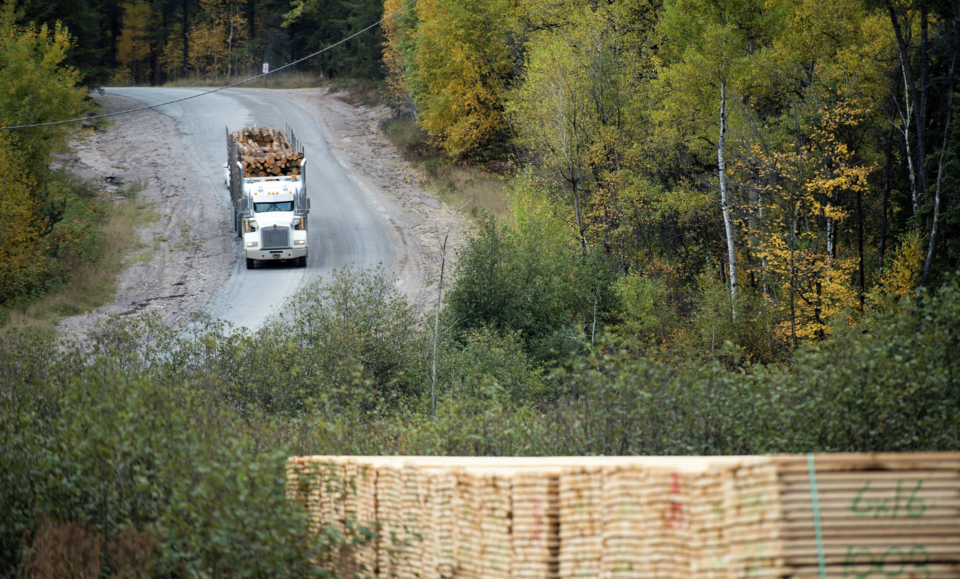Government aid to deliver relief to the embattled forestry industry is being welcomed by industry and municipal groups. But a negotiated, permanent solution to end the Canada-U.S. softwood lumber dispute is needed to ensure the long-term viability of the sector.
That’s the reaction trickling in to the U.S. Department of Commerce’s move last week to significantly increase duties on exports of Canadian softwood lumber to the U.S.
The combined anti-dumping and countervailing duty rate has more than doubled from 14.4 per cent to now 35.19 per cent.
That news from last week comes as absolutely no surprise to anyone at the Ontario Forest Industries Association (OFIA), whose corporate and mom-and-pop shop members have been digging in for the worst since the beginning of the year.
In an Aug. 8 news release, OFIA president-CEO Ian Dunn said the softwood lumber dispute must remain a “top priority” in Ottawa’s trade discussions with the U.S.
“Ontario’s forest sector depends on international trade, exporting approximately $7.9 billion worth of goods per year,” said Dunn.
Provincial and federal measures, such as offering loan guarantees, will “provide liquidity to impacted companies,” Dunn said, as will government procurement policies to use more domestically produced building materials in infrastructure and homebuilding projects.
OFIA said American consumers will feel the pain from U.S. duties on Ontario forest products.
He cited a recent Canadian Chamber of Commerce report that tariffs and duties on construction materials imported in the U.S., between 2018 and 2014, have added up to US$6,000 to cost of a single family home in the states. That cost should climb another $14,000 by the end of 2027, if the current measures stay in place.
Others are condemning Washington’s actions.
The Northwestern Ontario Municipal Association (NOMA) said the escalation to 35.19 per cent is “deeply unfair and unjustified” and threatens the economic stability of forest mill-dependent communities.
Association president and Marathon mayor Rick Dumas responded that the Canadian and U.S. governments must resolve this “decades-long” trade dispute.
“Our communities need certainty, fairness, and a durable, rules-based solution that supports rural and Indigenous economies and keeps lumber affordable for all.”
NOMA’s northeastern Ontario counterparts, the Federation of Northern Ontario Municipalities, said the duty hike will deliver a “serious blow” to the region’s forestry sector that puts jobs, local businesses, and communities at risk.
“This latest tariff hike is both unfair and economically destructive,” said FONOM President Danny Whalen in a statement.
“Northern Ontario’s forestry workers and communities will be hit hard, while American families will pay.”
FONOM applauded federal and provincial aid to the embattled industry, but adds that short-term fixes is not enough.
“It’s time for the Canadian and U.S. governments to stop playing politics and negotiate a fair, long-term, rules-based agreement that safeguards rural and Indigenous economies and keeps lumber affordable for all,” said Whalen.




